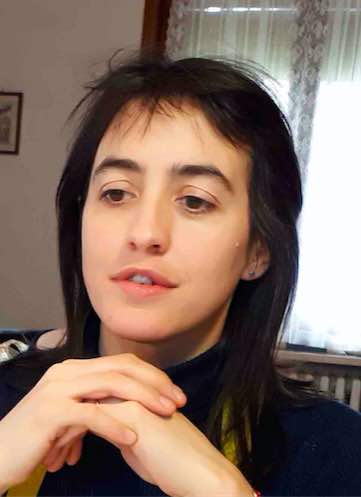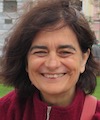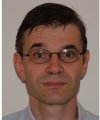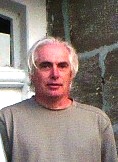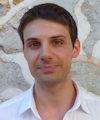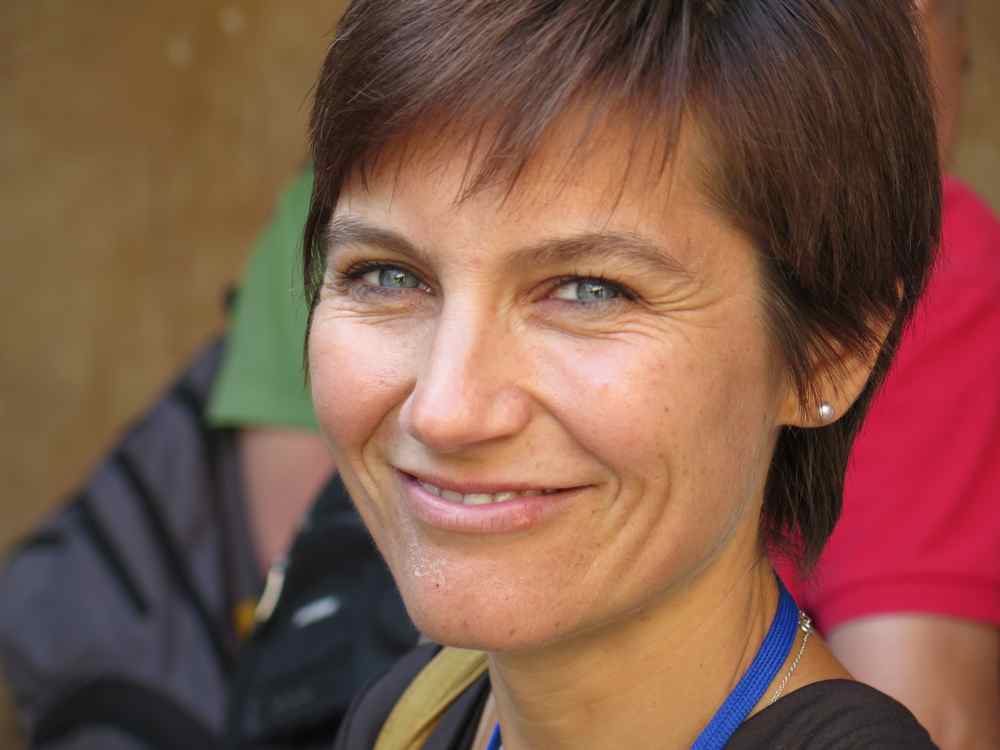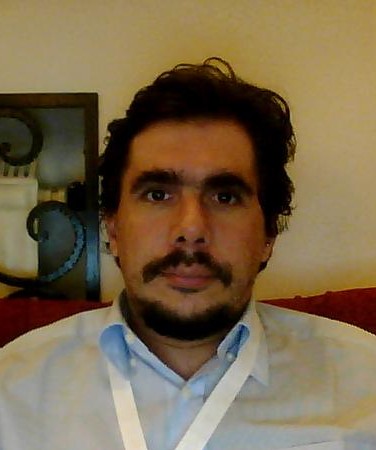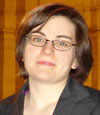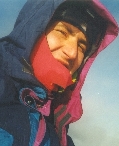Studying at the University of Verona
Here you can find information on the organisational aspects of the Programme, lecture timetables, learning activities and useful contact details for your time at the University, from enrolment to graduation.
Academic calendar
The academic calendar shows the deadlines and scheduled events that are relevant to students, teaching and technical-administrative staff of the University. Public holidays and University closures are also indicated. The academic year normally begins on 1 October each year and ends on 30 September of the following year.
Course calendar
The Academic Calendar sets out the degree programme lecture and exam timetables, as well as the relevant university closure dates..
| Period | From | To |
|---|---|---|
| I semestre | Oct 1, 2018 | Jan 31, 2019 |
| II semestre | Mar 4, 2019 | Jun 14, 2019 |
| Session | From | To |
|---|---|---|
| Sessione invernale d'esame | Feb 1, 2019 | Feb 28, 2019 |
| Sessione estiva d'esame | Jun 17, 2019 | Jul 31, 2019 |
| Sessione autunnale d'esame | Sep 2, 2019 | Sep 30, 2019 |
| Session | From | To |
|---|---|---|
| Sessione di laurea estiva | Jul 22, 2019 | Jul 22, 2019 |
| Sessione di laurea autunnale | Oct 15, 2019 | Oct 15, 2019 |
| Sessione di laurea invernale | Mar 19, 2020 | Mar 19, 2020 |
| Period | From | To |
|---|---|---|
| Sospensione attività didattica | Nov 2, 2018 | Nov 3, 2018 |
| Vacanze di Natale | Dec 24, 2018 | Jan 6, 2019 |
| Vacanze di Pasqua | Apr 19, 2019 | Apr 28, 2019 |
| Vacanze estive | Aug 5, 2019 | Aug 18, 2019 |
Exam calendar
Exam dates and rounds are managed by the relevant Science and Engineering Teaching and Student Services Unit.
To view all the exam sessions available, please use the Exam dashboard on ESSE3.
If you forgot your login details or have problems logging in, please contact the relevant IT HelpDesk, or check the login details recovery web page.
Should you have any doubts or questions, please check the Enrollment FAQs
Academic staff
 maurizio.boscaini@univr.it
maurizio.boscaini@univr.it
 federico.busato@univr.it
federico.busato@univr.it
 rosanna.laking@univr.it
rosanna.laking@univr.it

Mazzuoccolo Giuseppe
 giuseppe.mazzuoccolo@univr.it
giuseppe.mazzuoccolo@univr.it
 +39 0458027838
+39 0458027838

Wessel Daniel
Study Plan
The Study Plan includes all modules, teaching and learning activities that each student will need to undertake during their time at the University.
Please select your Study Plan based on your enrollment year.
1° Year
| Modules | Credits | TAF | SSD |
|---|
| Modules | Credits | TAF | SSD |
|---|
| Modules | Credits | TAF | SSD |
|---|
Legend | Type of training activity (TTA)
TAF (Type of Educational Activity) All courses and activities are classified into different types of educational activities, indicated by a letter.
Stochastic differential equations (2018/2019)
Teaching code
4S001444
Teacher
Coordinator
Credits
6
Language
English
Scientific Disciplinary Sector (SSD)
MAT/06 - PROBABILITY AND STATISTICS
Period
II semestre dal Mar 4, 2019 al Jun 14, 2019.
Learning outcomes
This course will provide an introduction to the theory of Stochastic Differential Equations (SDEs), mainly based on the Brownian motion type of noise. The purpose of this course is to introduce and analyse probability models that capture the stochastic features of the system under study to predict the short and long term effects that this randomness will have on the systems under consideration. The study of probability models for continuous-time stochastic processes involves a broad range of mathematical and computational tools. This course will strike a balance between the mathematics and the applications. The main applications will be mathematical finance, biology and populations evolution, also with respect to their descriptions in terms of the associated SDEs. Topics include: construction of Brownian motion; martingales in continuous time; stochastic integral; Ito calculus; stochastic differential equations; Girsanov theorem; martingale representation; the Feynman-Kac formula and Lévy processes.
Program
Course Plan
I) BACKGROUND: sigma-algebras, filtrations, conditional expectation, martingale property, variations of a function, quadratic variation.
II) RANDOM WALK: random walk, re-scaled random walk, martingale property.
III) BROWNIAN MOTION: definition of Brownian motion, function of a Brownian motion, martingale property, exponential martingale, applications in biology and finance, examples and exercises.
IIIa) SHORT INTRODUCTION TO JUMP PROCESSES: motivation, Poisson processes, properties, discrete time case, introduction to Galton Watson model.
III) WIENER INTEGRAL: motivation, case of step function, definition of Wiener integral, properties, law, martingale, quadratic variation, applications in biology and finance, examples and exercises.
IV) STOCHASTIC INTEGRALS: motivation, case of step function, definition of stochastic integral, properties, martingale, quadratic variation, variance, finite variation processes, Ito processes, applications in biology and finance, examples and exercises.
V) ITO CALCULUS: motivation, Itō-Doeblin formula for Brownian motion, Itō-Doeblin formula for function depending on time,Itō-Doeblin formula for Ito processes, applications in biology and finance, examples and exercises.
VI) SDEs: motivations, definition, existence and uniqueness result, applications in biology and finance, examples and exercises.
VII) MULTI-DIMENSIONAL CASE: multi-dim Brownian motion, correlation, multi-dim Ito-formula,
SDE, applications in biology and finance, examples and exercises.
VIII) CHANGE OF PROBABILITY: motivations, Cameron-Martin theorem, Girsanov theorem, representation of martingale theorem, applications in biology and finance, examples and exercises.
IX) FEYNMAN KAC FORMULA: motivation, Feynman Kac formula, link PDE/SDE, Monte-Carlo methods.
X) JUMPS PROCESSES: Levy processes, characterization and properties.
| Author | Title | Publishing house | Year | ISBN | Notes |
|---|---|---|---|---|---|
| I. Karatzas and S. Shreve | Brownian motion and stochastic calculus | ||||
| D. Revuz and M. Yor | Continuous martingales and Brownian motion | ||||
| M.Yor et al | Exponential Functionals of Brownian Motion and related Processes | Springer | 2010 | ||
| D. Williams | Probability with martingales | ||||
| B. Øksendal | Stochastic Differential Equations | ||||
| N. Ikeda and S. Watanabe | Stochastic Differential Equations and Diffusion Processes | ||||
| P. Protter | Stochastic integration and differential equations |
Examination Methods
Oral exam with written exercises:
the exam is based on open-ended questions as well as on the discussion of written exercises to be carried out during the test itself. Open questions and exercises are aimed at verifying the knowledge related to the topics developed in the course program, hence concerning problems of both the basic theory of stochastic processes, and of stochastic differential equations.
Type D and Type F activities
Modules not yet included
Career prospects
Module/Programme news
News for students
There you will find information, resources and services useful during your time at the University (Student’s exam record, your study plan on ESSE3, Distance Learning courses, university email account, office forms, administrative procedures, etc.). You can log into MyUnivr with your GIA login details: only in this way will you be able to receive notification of all the notices from your teachers and your secretariat via email and soon also via the Univr app.
Double degree
The University of Verona, through a network of agreements with foreign universities, offers international courses that enable students to gain a Double/Joint degree at the time of graduation. Indeed, students enrolled in a Double/Joint degree programme will be able to obtain both the degree of the University of Verona and the degree issued by the Partner University abroad - where they are expected to attend part of the programme -, in the time it normally takes to gain a common Master’s degree. The institutions concerned shall ensure that both degrees are recognised in the two countries.
Places on these programmes are limited, and admissions and any applicable grants are subject to applicants being selected in a specific Call for applications.
It's online Erasmus + - double joint degree a.y. 2024/2025
The latest Call for applications for Double/Joint Degrees at the University of Verona is available now!
For the presentation of the LA and subsequent recognition of CFUs, please refer to the International Mobility Regulations.
Documents
| Title | Info File |
|---|---|
|
|
pdf, it, 461 KB, 24/11/23 |
|
|
pdf, it, 361 KB, 23/02/24 |
Alternative learning activities
In order to make the study path more flexible, it is possible to request the substitution of some modules with others of the same course of study in Mathematics at the University of Verona (if the educational objectives of the modules to be substituted have already been achieved in the previous career), or with others of the course of study in Mathematics at the University of Trento.Documents
| Title | Info File |
|---|---|
|
|
pdf, it, 167 KB, 27/08/21 |
|
|
pdf, it, 44 KB, 30/08/21 |
|
|
pdf, it, 113 KB, 30/08/21 |
Attendance
As stated in the Teaching Regulations for the A.Y. 2022/2023, except for specific practical or lab activities, attendance is not mandatory. Regarding these activities, please see the web page of each module for information on the number of hours that must be attended on-site.
Career management
Student login and resources
Graduation
Deadlines and administrative fulfilments
For deadlines, administrative fulfilments and notices on graduation sessions, please refer to the Graduation Sessions - Science and Engineering service.
Need to activate a thesis internship
For thesis-related internships, it is not always necessary to activate an internship through the Internship Office. For further information, please consult the dedicated document, which can be found in the 'Documents' section of the Internships and work orientation - Science e Engineering service.
Final examination regulations
Upon completion of the Master’s degree dissertation students are awarded 32 CFU. The final examination consists of a written dissertation on a specific topic agreed with a supervising professor and presented to a commission (Dissertation Committee).
The dissertation can be high-level theoretical or experimental (in the latter case, it may focus on either basic or applied research), it can deal with a theoretical topic or propose the resolution of a specific problem, or description of a work project, and may be carried out at universities, research institutions, schools, laboratories and companies in the framework of internships, traineeships, study stays in Italy and abroad. The dissertation must be original and written by the student under the guidance of a Supervisor. At the request of the student, the dissertation may be written and presented in Italian.
Professors belonging to the Mathematics Teaching Committee, the Department of Computer Science, and any associated departments may be appointed as Supervisors, as well as any professors from the University of Verona whose area of interest (SSD - Scientific-disciplinary Sector) is included in the teaching regulations of the degree programme.
Students may take the final exam only if meeting all requirements set by the School of Sciences and Engineering.
The Master's degree in Mathematics is obtained by successfully passing the final examination and thus earning the 120 CFU included in the study plan.
The material submitted by the student for the final examination will be examined by the Dissertation Committee, which comprises three professors, possibly including the Supervisor, and appointed by the President of the Teaching Committee. The final examination will be assessed based on the following criteria: the student’s performance during the entire study programme, the knowledge acquired during the dissertation work, their understanding of the topic and autonomy of judgment, their ability to apply such knowledge, and communicate effectively and fully all the outcomes of the work and the main results obtained.
The final examination and the degree ceremony will be carried out, in one of the four graduation sessions throughout the academic year, by the Final Examination Committee appointed by the President of the Teaching Committee, and made up of a president and at least four members chosen from among the professors of the University.
For further information, please refer to the Final examination regulations.
Documents
| Title | Info File |
|---|---|
|
|
pdf, it, 31 KB, 02/11/22 |
|
|
pdf, en, 31 KB, 02/11/22 |
|
|
pdf, it, 171 KB, 20/03/24 |
List of theses and work experience proposals
| theses proposals | Research area |
|---|---|
| Controllo di sistemi multiagente | Calculus of variations and optimal control; optimization - Hamilton-Jacobi theories, including dynamic programming |
| Controllo di sistemi multiagente | Calculus of variations and optimal control; optimization - Manifolds |
| Controllo di sistemi multiagente | Calculus of variations and optimal control; optimization - Optimality conditions |
| Formule di rappresentazione per gradienti generalizzati | Mathematics - Analysis |
| Formule di rappresentazione per gradienti generalizzati | Mathematics - Mathematics |
| Mathematics Bachelor and Master thesis titles | Various topics |
| Stage | Research area |
|---|---|
| Internship proposals for students in mathematics | Various topics |
